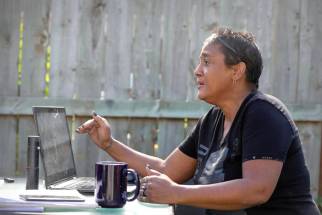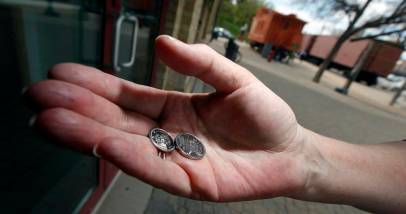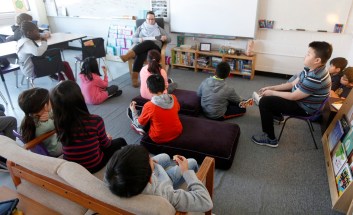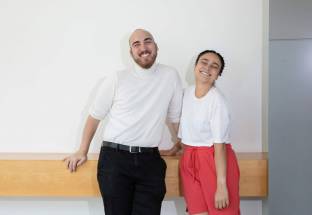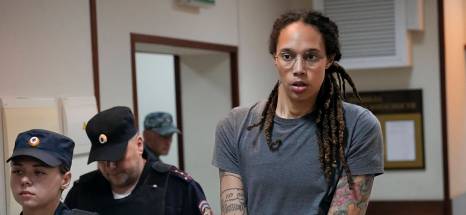Swept aside no more New BIPOC theatre company Out From Under the Rug makes debut at PTE
Read this article for free:
or
Already have an account? Log in here »
To continue reading, please subscribe:
Monthly Digital Subscription
$1 per week for 24 weeks*
- Enjoy unlimited reading on winnipegfreepress.com
- Read the E-Edition, our digital replica newspaper
- Access News Break, our award-winning app
- Play interactive puzzles
*Billed as $4 plus GST every four weeks. Offer only available to new and qualified returning subscribers. Cancel any time.
Read unlimited articles for free today:
or
Already have an account? Log in here »
Hey there, time traveller!
This article was published 10/08/2022 (936 days ago), so information in it may no longer be current.
Bastard. The word triggers an automatic response in whoever hears it spoken. It can be a stinging, destructive insult, an offbeat catchphrase meant to signal disappointment, or a noun that hits the ear and rings loud and clear, with an echo. When something doesn’t quite fit, or juts out like a broken toe, it’s called bastard-sized. If it doesn’t conform, a bastard is what it is. It’s an outlier in a world of insiders.
Another thing that word does is grab your attention. And that’s exactly what Sophie Smith-Dostmohamed wanted to do when the 23-year-old Winnipeg playwright chose those seven letters as the title for the first play produced by the Out From Under the Rug Theatre Collective, running until Monday at Prairie Theatre Exchange.
Bastards are hard to ignore, and so too should be Out From Under the Rug. A new collective made up entirely of BIPOC creatives, all of whom are at the nascent stages of their careers, the group’s members are putting themselves — their racial backgrounds, their queerness, their experiences navigating an industry and world which often ignores those identities — at the heart of their work.
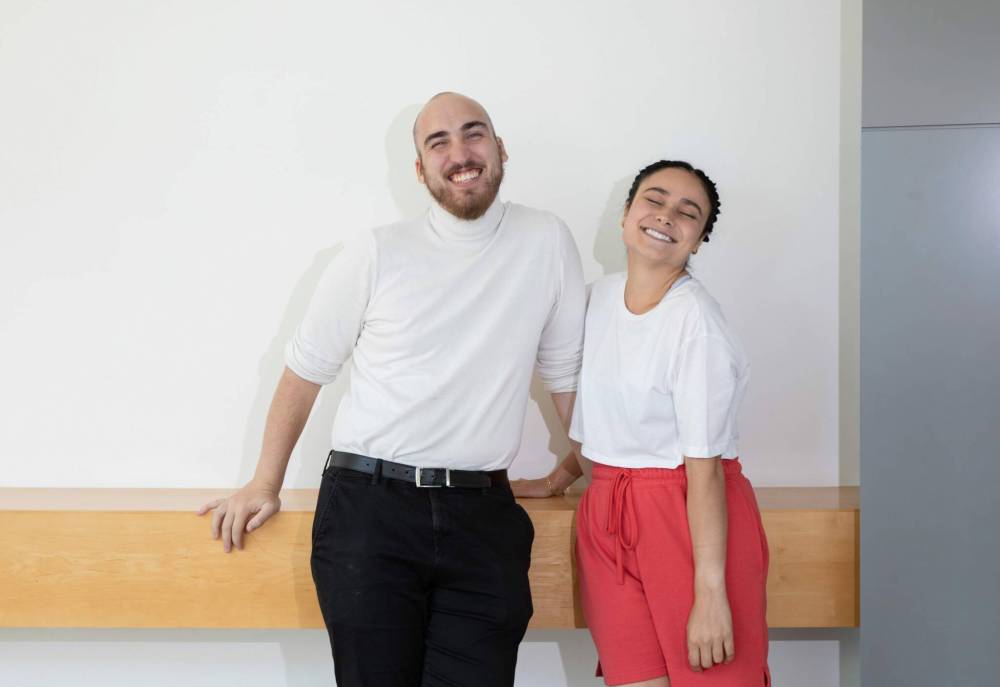
JESSICA LEE / WINNIPEG FREE PRESS
Out From Under the Rug’s actor and playwright Sophie Smith-Dostmohamed and director Matthew Paris-Irvine don’t want to wait to tell vibrant young stories.
Those experiences are rich, and Smith-Dostmohamed, who is of mixed settler and Yemeni descent, said they are defined as much by difficulty and loss as they are by the satisfaction of finding community and discovering oneself. “I think a lot of the time, we talk about intergenerational trauma, and the way it runs through us from our ancestors,” said Smith-Dostmohamed, who uses they/them pronouns. “But intergenerational trauma can’t exist without intergenerational joy, and this sense of community that still exists in us even though we sometimes feel a longing for home. It’s important to remember we have that choice too.”
Not interested in waiting until later in their careers to tell those stories, the collective — made up of Smith-Dostmohamed, Omar Samuels, Melissa Langdon, and Matthew Paris-Irvine — decided to tell them from the start.
“I think I came into this (field) believing that theatre was a space of unbridled opportunity, and that no matter what, if you were talented, or interesting, or beautiful, you could make the art you wanted to make,” said Paris-Irvine, 25, who directs the two-person cast of Smith-Dostmohamed and actor Carly Rackal in Bastard. And despite a lot of tremendous mentorship and collegiality, the group ultimately saw patterns of exclusion that limited their voices.
The community-based approach of the company spoke to Rackal, 26. “Not only is this my first professional show,” Rackal says, “but it is the first show that I have ever worked on in my entire career so far that has an entire cast and production team made up of members of the BIPOC community.” Every element of the production, which was made possible through a residency at PTE, came from BIPOC creatives: the sets, the costuming, the lighting, the direction, the sound design, and more. (A glance at the PTE’s upcoming slate of productions — from BIPOC or queer playwrights Makambe K Simamba, Ins Choi, Frances Koncan, and Elio Zarrillo — show a real commitment to equity in the theatre beyond Bastard).
It’s clear that the company’s mission statement is noble, but one might wonder, what of the work itself? What specific story does it tell? And does it live up to the promise?
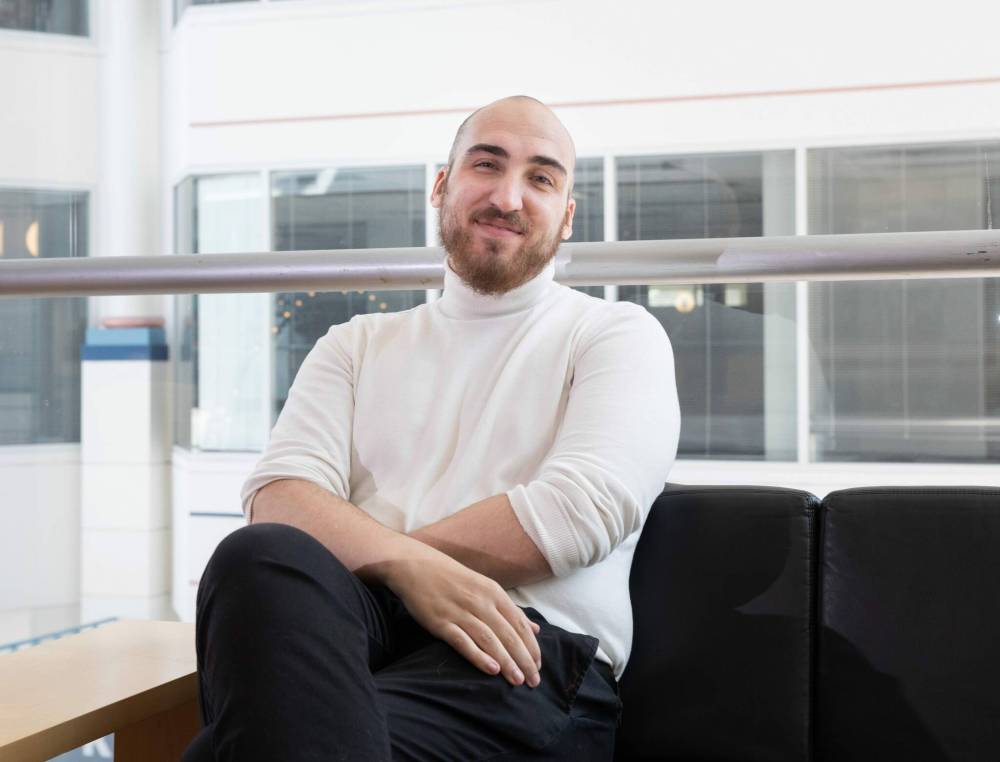
JESSICA LEE / WINNIPEG FREE PRESS
Part of director Matthew Paris-Irvine’s motivation is that he saw patterns of exclusion that limited voices.
Smith-Dostmohamed is purposefully cryptic, but intriguing, in their plot summary. “Thematically, it’s about love. It’s also about home, and what that means to many people. As well as memory. And joy as well.
“It’s also about basketball and eggs.”
Eggs? “Like the ones you crack,” the playwright laughs. “The ones you eat,” Rackal interjects. “Or the ones you don’t eat if you hate eggs,” Smith-Dostmohamed replies.
In a play with only two actors, they’d better have chemistry, and Paris-Irvine says Smith-Dostmohamed and Rackal function as two sides of the same coin. Their characters, Little and Big, are the same person at different points in their lives, and in a sample scene performed for local media, it’s clear what Paris-Irvine means.
Rackal stands on a sparsely decorated stage, talking on the phone, and hangs up, dejected, before picking up an old Thai food takeout container from a couch the company bought on the cheap at a Goodwill shop. She is slow, sad, burdened, though it isn’t clear by what. Then, she slams her hands down on a table. Rackal lays down, and out pops the younger version of herself, played by Smith-Dostmohamed, careening off invisible walls in the Colin Jackson Studio Theatre, like a pinball shot out of a cannon.
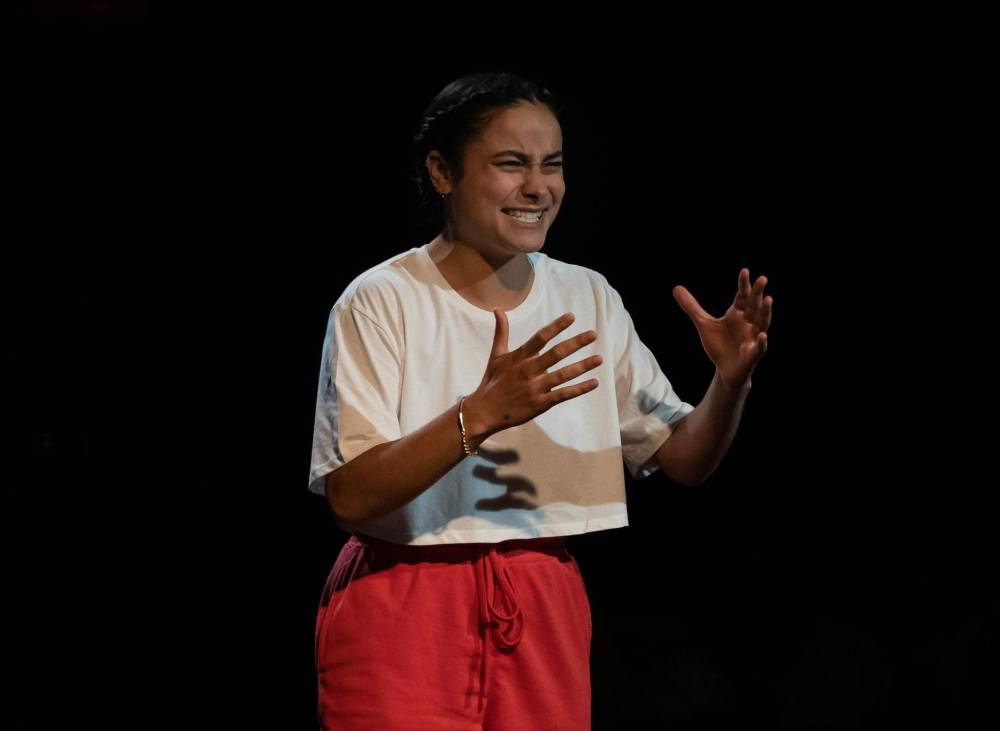
JESSICA LEE / WINNIPEG FREE PRESS
‘We talk about intergenerational trauma, and the way it runs through us from our ancestors, but intergenerational trauma can’t exist without intergenerational joy,’ says actor and playwright Sophie Smith-Dostmohamed.
“it’s a really weird feeling knowing your parents don’t love each other anymore,” Smith-Dostmohamed says in a cadence so fast, moving so quickly, that it almost produces whiplash.
The actor is a ball of stress. They can’t stop. They talk and talk and talk, for three or four minutes, but it’s hard not to hang on to every word. About divorce, about childhood trauma. About shame. And blame. And anger. It’s a lot.
What does it all mean? Is Smith-Dostmohamed a representation of repressed emotion? An anxious voice that won’t dislodge itself from their older self?
After the scene ends, the Free Press asks the playwright for a bit of an answer.
“That’s all for you to decide,” they said.
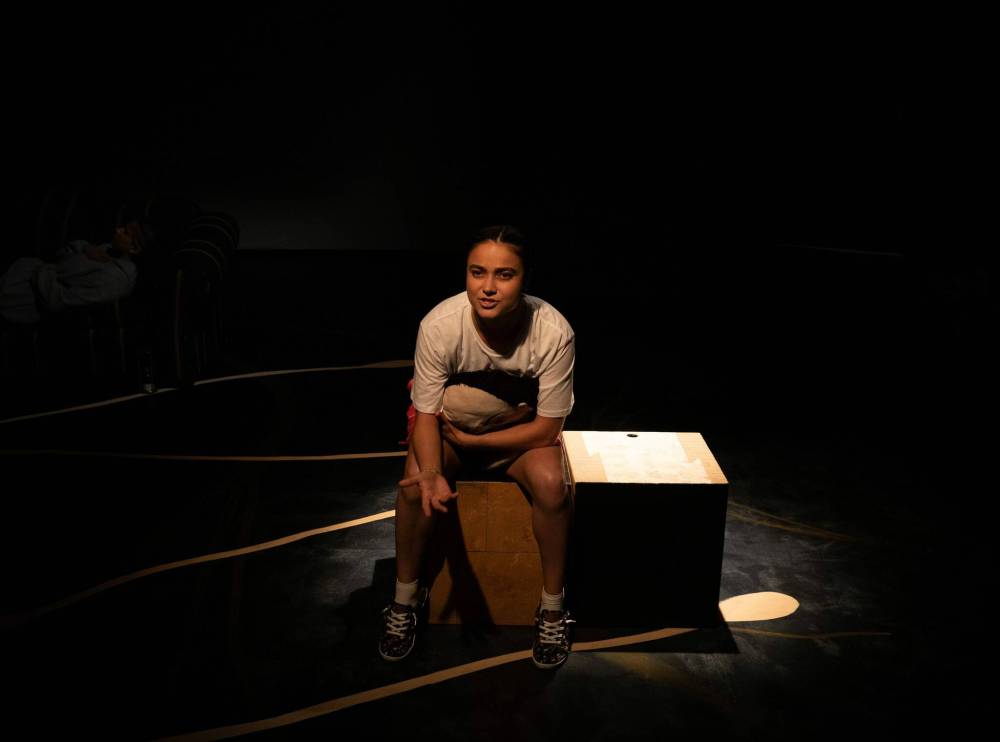
JESSICA LEE / WINNIPEG FREE PRESS
In the play, Bastard, when Carly Rackal’s character is laid flat, dejected, up rises the actor/playwright Sophie Smith-Dostmohamed’s frenetic, compelling character.
Bastard., is running through Monday, Aug. 15 at the PTE’s Colin Jackson Studio Theatre, located on the third floor of Portage Place mall. Tickets are available at www.pte.mb.ca.

Ben Waldman
Reporter
Ben Waldman covers a little bit of everything for the Free Press.
Our newsroom depends on a growing audience of readers to power our journalism. If you are not a paid reader, please consider becoming a subscriber.
Our newsroom depends on its audience of readers to power our journalism. Thank you for your support.


